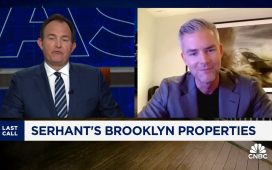The insurer used by almost all English barristers gave legal work worth £750,000 to one of its own directors, an arrangement that raised questions about potential conflicts of interest in an industry that prides itself on the highest standards of ethics and governance.
Dame Joanna Smith, who is now a High Court judge, was paid the money over three years by the Bar Mutual Indemnity Fund, where she was a non-executive director from 2014 until December 2020 when she resigned to take up her position as a senior judge.
Bar Mutual, established in 1988, provides primary professional indemnity insurance to all self-employed barristers in England and Wales up to a value of £2.5mn. Self-employed barristers have to buy its insurance. The payments to Smith are the largest Bar Mutual has ever made to a director.
The legal profession is facing questions on both sides of the Atlantic over the financial interests of its top figures. In the US, Supreme Court justice Clarence Thomas has faced criticism after revelations of his close relationship with a billionaire businessman. In the UK, Smith was one of five judges named in a Financial Times report last month as having invested in tax avoidance schemes before joining the High Court.
The Judicial Office, which supports the judiciary in England and Wales, told the FT that Smith did not wish to comment on the Bar Mutual payments. Bar Mutual said it was satisfied there had been no breach of its conflict of interest policy.
Payments of £748,494 to Smith were disclosed in Bar Mutual’s accounts for 2018-19 through to 2020-21 but have not been previously reported. Smith, then a leading professional negligence barrister, was paid to defend two high-value claims against Bar Mutual members.
Andy Boon, a professor at The City Law School, said Bar Mutual instructing its directors in cases it is funding could provide “the wrong motive for serving” on the board. The practice risked the perception that directorships provided “access to plum jobs”, he said.
He also noted that an insurer and its client might disagree on whether to settle or keep spending money to fight a case — a conflict of interest potentially worsened “where a professional advocate instructed through the insurer is a member of its governing body”.
“An institution like [Bar Mutual] might also consider the reputation of the Bar,” he added.
Barristers are required to pay premiums to Bar Mutual that vary depending on the riskiness of their legal practice. Lawyers can buy top-up insurance on the open market. In the year ending March 2022, Bar Mutual received £18.2mn in gross premiums and had about 13,500 members.
When barristers are sued by their clients, Bar Mutual consults them about which lawyers to appoint to defend the claim, but “the decision on whom to instruct is ultimately that of Bar Mutual”, its website says. The fund is managed day-to-day by an insurance services company, Thomas Miller.
Rebecca Sabben-Clare KC, chair of Bar Mutual since July 2022, told the FT that Smith “played no part” in her own hiring and that the lawyers in cases funded by Bar Mutual are chosen by its managers, not its directors.
Sabben-Clare said Smith had been instructed “on the recommendation of panel solicitors and in accordance with the preference of the members concerned”. She added the fees charged by Smith were at a discounted rate and the work “included preparation up to the eve of a trial”.
Smith was not involved in any of the board’s “high-level supervision” of the cases in which she acted, Sabben-Clare added. “BMIF has a written conflict of interest policy. I am satisfied that this was never breached,” she said.
“I was recruited to the board at the same time as Mrs Justice Smith and I am therefore in a position to tell you, as a matter of fact, that she was motivated to join the board solely out of a sense of service,” she added.
Thomas Miller’s chief executive, Ahmed Salim, did not respond to requests for comment.
Bar Mutual does not pay directors for their work as board members. In Bar Mutual’s 2021 accounts, then-chair Colin Edelman KC said this requirement to work pro-bono was in the “best tradition of the Bar”.
Only three other directors have received payments to act on Bar Mutual cases in its history, receiving £30,000, £25,000 and £6,400 in total respectively, its accounts show.
There are no rules against non-executive directors receiving contracts from companies on whose board they serve. The law requires disclosure to the board about such potential conflicts of interests.
“It’s a lot of money, but I can’t see that there is an issue, as long as they disclosed it,” said Joan Loughrey, professor of corporate law at Queen’s University Belfast, who emphasised she was speaking in a personal capacity.
Two barristers, who spoke to the FT on condition of anonymity but had no current or prior role at Bar Mutual, said they did not believe there was an actual conflict of interest in Smith’s dual roles.
They argued that a ban on Bar Mutual instructing its board members could deter qualified directors with expertise in professional negligence litigation.
But they added that the perception was potentially concerning. “It’s the scale of money that maybe is the problem,” said one. “You don’t want anyone to think that the reason you’re getting this work is because you have a cosy relationship with the fund,” said the second.
Additional reporting by Kate Beioley












